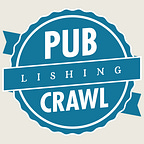And we are back! After a bit of an unplanned hiatus, JJ and Kelly are back to regularly scheduled podcast episodes. Apologies for some of the audio quality—Kelly was apparently dying and we are out of practice with podcasting. But we wrap up our Writing Mechanics series this time around with SENTENCE CRAFT, or what makes good writing on a sentence level, not just macro level things like plot and pacing.
Show Notes
The hallmark of "good writing" is Clarity. The most important thing in writing is making yourself clear, both in prose and in plot. In fact, the best writing is "invisible," which more or less means that the reader is so swept up by the story that they don't notice the writing.
It's imperative that the writer have a thorough grasp of the English language, but grammatically perfect English sounds stilted and unnatural. Naturalistic language is preferable to read, and this is why we advocate reading your prose aloud. Not just for errors, repetition, awkward construction, sentence length, etc. but to make sure the language flows naturally.
Sentence craft is not necessarily writing on an individual sentence level; it's how the sentences come together to tell the story.
Good writing has variation. Sentence length and structure should be varied so reading doesn't become monotonous.
A lot of writers fall into the trap of thinking extremely flowery figurative language is "good," but it most often reads as awkward and forced.
What We're Working On
So...NaNoWriMo did not happen for either Kelly or JJ due to...well, yeah.
JJ eventually found her way back to book 2 and is working on it again.
Books Discussed/What We're Reading
The Sun Also Rises by Ernest Hemingway
Tales from the Shadowhunter Academy by Cassandra Clare, Sarah Rees Brennan, Maureen Johnson, and Robin Wasserman
The Lunar Chronicles by Marissa Meyer
Pleasure and Purpose by Megan Hart
The Sleeping Beauty Trilogy and Beauty's Kingdom by Anne Rice as A. N. Roquelare
Priest by Sierra Simone
Empire of Storms by Sarah J. Maas
Like a River Glorious by Rae Carson
To All the Boys I've Loved Before by Jenny Han
The Summer I Turned Pretty by Jenny Han
Swarm by Scott Westerfeld, Margo Lanagan, and Deborah Biancotti
Saga by Brian K. Vaughan and Fiona Staples
Off Menu Recommendations
Hamilton (of course)
What You're Asking
We received a question on Soundcloud about plagiarism and warranty, but we won't be reading the question aloud as it names a specific author. However, we do want to clarify what plagiarism actually is. Plagiarism is the theft of another's "language, thoughts, ideas, or expression" and passing it off as your own. What plagiarism is NOT: when the premise of a book is similar to another. Tropes exist and have existed ever since humans began telling each other stories around a campfire. No idea is ever original.
Here is an excellent breakdown on plagiarism by the Smart Bitches, as well as an example of what plagiarism actually looks like: The Cassie Edwards Ferret Scandal (complied into a PDF here).
As you can see, the author in question lifted enormous passages of writing from someone else, modifying it only very slightly. The words ("language") is stolen, yes, but moreover, the research and expression of ideas is what got plagiarized. As we said, similarities between fictional properties is not plagiarism. If one book has a reincarnation storyline, and a few years later, another is published with a reincarnation storyline, that is not plagiarism. Reincarnation as an idea has existed for centuries and is part of two major world religions.
If two premises are the same, the execution—or expression—will differentiate them.
What You're Saying
No new reviews this week, but if you want to give us a shoutout, we would greatly appreciate it! :-D
That's all for this week! Next week we'll be starting a new series about TROPES. As always, if you have any questions, please leave them in the comments, or reach out to us on Twitter with the hashtag #askpubcrawl.




